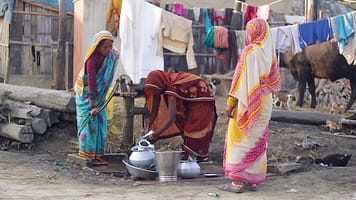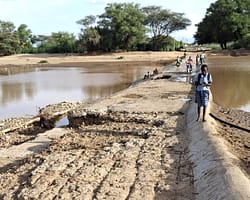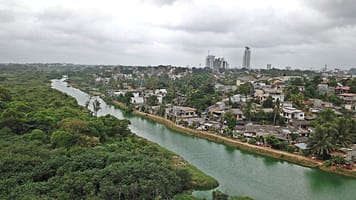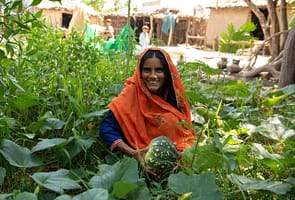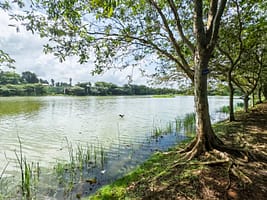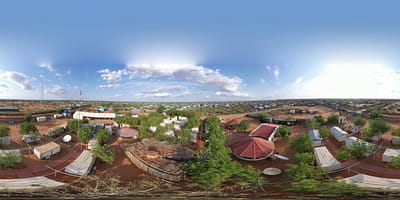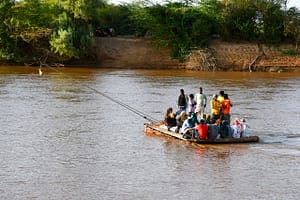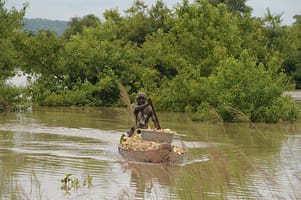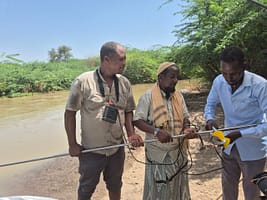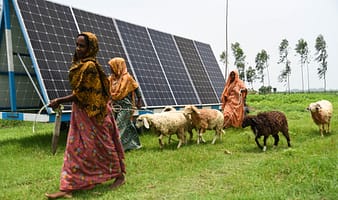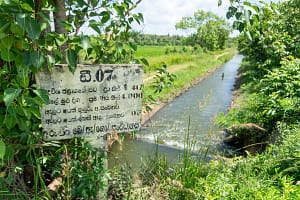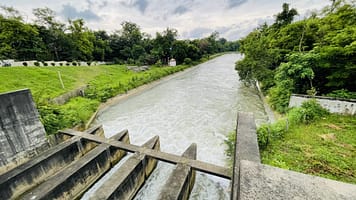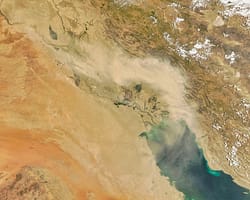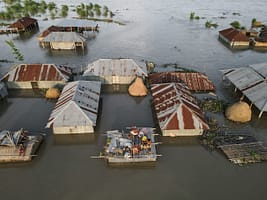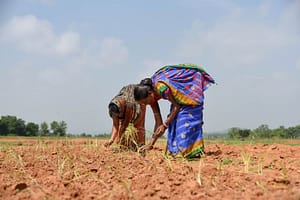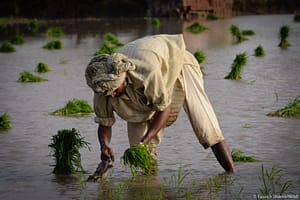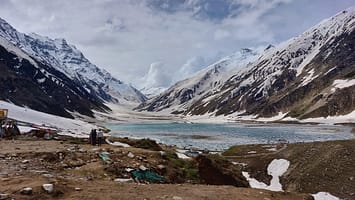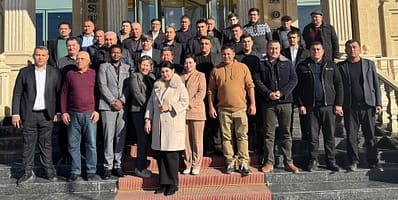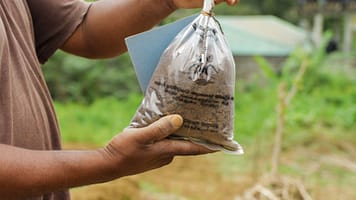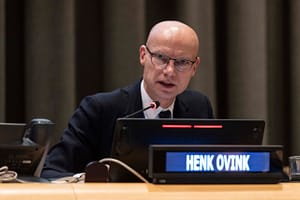All Categories News (461) Explainers (5) Features (174) In the media (238) Press releases (80) Publications (48) Specials (0) Annual reports (6) Blogs (315) From the DG (6) Multimedia (0) Infographics (3) Photos (6) Podcasts (10) Videos (49)
All Locations Africa (461) Algeria (1) Angola (1) Benin (3) Botswana (6) Burkina Faso (9) Burundi (1) Chad (1) Côte d’Ivoire (4) Democratic Republic of the Congo (1) Egypt (38) Ethiopia (88) Gambia (1) Ghana (85) Kenya (30) Lesotho (1) Libya (3) Malawi (9) Mali (6) Morocco (18) Mozambique (8) Namibia (6) Niger (1) Nigeria (23) Rwanda (5) Senegal (4) Sierra Leone (1) South Africa (34) Sudan (3) Togo (2) Tunisia (10) Uganda (8) United Republic of Tanzania (5) Zambia (34) Zimbabwe (18) Americas (20) Brazil (2) Colombia (5) Ecuador (1) Mexico (3) Nicaragua (1) Paraguay (1) Peru (2) United States of America (3) Asia (629) Afghanistan (8) Azerbaijan (2) Bangladesh (38) Bhutan (3) Cambodia (6) China (17) India (138) Indonesia (1) Iran (2) Iraq (5) Japan (2) Jordan (33) Kazakhstan (2) Kyrgyzstan (4) Lao PDR (18) Lebanon (12) Malaysia (1) Myanmar (14) Nepal (100) Pakistan (97) Philippines (1) Saudi Arabia (8) Sri Lanka (153) Syrian Arab Republic (3) Tajikistan (10) Thailand (1) Turkmenistan (2) United Arab Emirates (16) Uzbekistan (19) Viet Nam (4) Yemen (5) Europe (5) Italy (1) Netherlands (1) Spain (2) Sweden (1) Ukraine (1) Global (137) Oceania (4) Australia (3) Fiji (1)
All Research Non-research (8) Water data science (178) Water data for climate resilience (8) Water data science for action (78) Water futures data and analytics (39) Water, climate change and resilience (434) Climate mitigation and adaptation pathways (264) Climate policies, finance and processes (43) Fragility, conflict, livelihoods and water (21) Water, food and ecosystems (385) Agricultural water management transformations (45) Integrated basin and aquifer management (28) Next generation irrigation systems (126) Sustainable water infrastructure and ecosystems (97) Water, food, energy nexus (86) Water, growth and inclusion (354) Economics and impact assessment (31) Gender equality and social inclusion (169) Integrated circular economy transformations (56) Water governance and political economy (45)
All Funders & Partners Africa Group of Negotiators Expert Support (1) African Development Bank (AfDB) (2) African Minister’s Council on Water (AMCOW) (1) African Union (1) African Union Commission (1) Agriculture And Climate Risk Enterprise (ACRE Africa) (1) Alliance for a Green Revolution in Africa (AGRA) (1) Alliance for Global Water Adaptation (AGWA) (6) Aquaporo (2) Arab Water Council (1) Arup (3) Asian Development Bank (ADB) (4) Association of International Research and Development Centers for Agriculture (AIRCA) (6) Centre for Agriculture and Bioscience International (CABI) (1) International Centre for Integrated Mountain Development (ICIMOD) (5) Australia’s Department of Foreign Affairs and Trade (DFAT) (9) Water for Women Fund (3) Australian Centre for International Agricultural Research (ACIAR) (8) Australian Water Partnership (AWP) (4) Bagmati Welfare Society (1) BAIF Development Research Foundation (1) Bangladesh Water Development Board (BWDB) (1) Bangladesh’s Ministry of Agriculture (1) Bangladesh Agricultural Research Council (BARC) (1) Bill & Melinda Gates Foundation (9) CARE (1) Center for Environment and Development for the Arab Region and Europe (CEDARE) (1) Centre for Poverty Analysis (CEPA) (1) Cewas (1) CGIAR (363) Alliance of Bioversity International and CIAT (10) Center for International Forestry Research and World Agroforestry (CIFOR-ICRAF) (2) International Center for Agricultural Research in the Dry Areas (ICARDA) (4) International Crops Research Institute for the Semi-Arid Tropics (ICRISAT) (1) International Food Policy Research Institute (IFPRI) (16) International Livestock Research Institute (ILRI) (2) International Maize and Wheat Improvement Center (CIMMYT) (9) International Potato Center (CIP) (1) International Rice Research Institute (IRRI) (14) WorldFish (8) Chrysalis (1) Climate Centre (2) Cobra Collective CIC (1) Columbia University (1) Cornell University (1) Council on Energy, Environment and Water (CEEW) (1) Deltares (3) Deutsche Gesellschaft fuer Internationale Zusammenarbeit (GIZ) GmbH (7) Digital Earth Africa (5) Economic Community of West African States (ECOWAS) (1) European Union (EU) (20) European Commission (10) Everest Club (2) Expertise France (1) Farm Africa (1) Field Ornithology Group of Sri Lanka (FoGSL) (1) Germany’s Federal Ministry for Economic Cooperation and Development (BMZ) (8) Ghana’s Ministry of Environment, Science, Technology and Innovation (1) Ghana’s Council for Scientific and Industrial Research (CSIR) (1) Ghana’s Ministry of Food and Agriculture (MoFA) (2) Ghana Irrigation Development Authority (GIDA) (1) Global Affairs Canada (2) International Development Research Centre (IDRC) (1) Global Commission on the Economics of Water (1) Global Environment Facility (GEF) (4) Global Green Growth Institute (GGGI) (1) Global Institute for Interdisciplinary Studies (1) Global Resilience Partnership (GRP) (1) Global Water Partnership (GWP) (18) Google.org (8) Government of Iraq (1) Green Climate Fund (GCF) (1) GroundTruth (2) Hawassa University (5) Helmsley Charitable Trust (14) iDE (1) IHE Delft Institute for Water Education (6) India’s Ministry of Agriculture and Farmers Welfare (8) Indian Council of Agricultural Research (ICAR) (7) Borlaug Institute for South Asia (BISA) (1) Central Arid Zone Research Institute (CAZRI) (1) Central Research Institute for Dryland Agriculture (CRIDA) (1) India’s Ministry of Jal Shakti (1) Indian Space Research Organisation (ISRO) (1) Innovative Engineering Services (IES) (1) Institute of Development Studies (IDS) (1) Inter-American Development Bank (IDB) (1) International Dryland Development Commission (IDDC) (1) International Federation of Red Cross and Red Crescent Societies (IFRC) (2) International Fund for Agricultural Development (IFAD) (8) International Institute for Applied Systems Analysis (IIASA) (1) International Union for Conservation of Nature (IUCN) (5) International Water Association (IWA) (3) International Water Resources Association (IWRA) (1) Interstate Commission for Water Coordination of Central Asia (ICWC) (1) Scientific-Information Center (SIC) (1) Japan’s Ministry of Agriculture, Forestry and Fisheries (MAFF) (7) Jordan’s Ministry of Agriculture (1) Kenya Agricultural & Livestock Research Organization (KALRO) (1) Kwame Nkrumah University of Science and Technology (1) League of Arab States (1) Arab Organization for Agricultural Development (AOAD) (1) Limpopo Watercourse Commission (LIMCOM) (2) McGill University (1) Mercy Corps (2) Ministry of Economic Affairs and Climate Policy of the Netherlands (1) Netherlands Enterprise Agency (RVO) (1) National Agriculture Research Center (1) National Association for Rural Municipalities in Nepal (1) NDC Partnership (1) Nepal Water Conservation Foundation (NWCF) (1) Nepal’s Ministry of Energy, Water Resources and Irrigation (3) Nepal’s Department of Hydrology and Meteorology (DHM) (1) Netherlands Food Partnership (NFP) (1) Netherlands Water Partnership (NWP) (1) Norwegian Agency for Development Cooperation (NORAD) (4) Organisation for Economic Co-operation and Development (OECD) (1) Pakistan Council of Research in Water Resources (PCRWR) (3) Pakistan Ministry of Climate Change and Environmental Coordination (MOCC) (1) Regional Environmental Centre for Central Asia (CAREC) (1) Resurgence (2) Schlumberger Faculty for the Future Stitching Fund (1) Sierra Leone’s Ministry of Water Resources (1) National Water Resources Management Agency (NWRMA) (1) SNV Netherlands Development Organisation (4) South Asian Association for Regional Cooperation (SAARC) (1) South China Agricultural University (SCAU) (1) Sri Lanka’s Ministry of Agriculture (6) Sri Lanka’s Department of Agrarian Development (3) Sri Lanka’s Ministry of Defence (6) Sri Lanka’s Disaster Management Division (5) Sri Lanka’s Disaster Management Centre (5) Sri Lanka’s Ministry of Environment (3) Sri Lanka’s Ministry of Finance, Planning and Economic Development (1) Sri Lanka’s Department of National Planning (1) Sri Lanka’s Ministry of Irrigation (2) Sri Lanka’s Ministry of Mahaweli Development and Environment (1) Sri Lanka’s Ministry of Technology (4) Arthur C. Clarke Institute for Modern Technologies (ACCIMT) (1) National Research Council of Sri Lanka (NRC) (2) Stockholm Environment Institute (SEI) (3) Stockholm International Water Institute (SIWI) (3) SunCulture (1) Swedish International Development Agency (SIDA) (4) Swedish University of Agricultural Sciences (SLU) (1) Swiss Agency for Development and Cooperation (SDC) (13) Tata Trusts (23) Total LandCare (1) Tribhuvan University (1) UK Research and Innovation (UKRI) (2) UK’s Department for Environment Food & Rural Affairs (1) UK’s Department for Science, Innovation and Technology (1) UK Met Office (2) UK’s Foreign, Commonwealth & Development Office (FCDO) (45) United Nations (UN) (80) Food and Agriculture Organization of the United Nations (FAO) (24) Intergovernmental Panel on Climate Change (IPCC) (1) Intergovernmental Science-Policy Platform on Biodiversity and Ecosystem Services (IPBES) (1) International Organization for Migration (IOM) (2) International Telecommunication Union (ITU) (1) Office of the High Commissioner for Refugees (2) Risk-informed Early Action Partnership (REAP) (1) UN Environment Programme (UNEP) (6) UN-Habitat (1) UN-Water (3) United Nations Children’s Fund (UNICEF) (8) United Nations Convention to Combat Desertification (UNCCD) (1) International Drought Resilience Alliance (IDRA) (2) United Nations Development Programme (UNDP) (3) United Nations Economic and Social Commission for Asia and the Pacific (1) United Nations Economic and Social Commission for Western Asia (ESCWA) (1) United Nations Educational, Scientific and Cultural Organization (UNESCO) (1) United Nations Framework Convention on Climate Change (UNFCCC) (6) United Nations Office for Disaster Risk Reduction (UNDRR) (1) Coalition for Disaster Resilient Infrastructure (1) United Nations Office for Outer Space Affairs (UNOOSA) (1) United Nations Office for the Coordination of Humanitarian Affairs (UN OCHA) (2) United Nations Population Fund (UNFPA) (1) World Food Programme (WFP) (12) World Meteorological Organization (WMO) (1) COPE Disaster Champions (1) United States Agency for International Development (USAID) (64) Feed the Future (2) United States Department of State (1) University of Aberdeen (5) University of London (1) School of Oriental and African Studies (SOAS) (1) University of Manchester (1) University of Nebraska (11) Daugherty Water for Food Global Institute (12) University of Oxford (1) Water Research Commission (WRC) of South Africa (1) Wellcome Trust (2) World Bank (83) International Development Association (IDA) (1) World Economic Forum (2) World Farmers’ Organization (WFO) (1) World Vision (6) Department of Water Resources (DWR) (2) National Oceanic and Atmospheric Administration (NOAA) (1) Southern African Dvelopment Community – Groundwater Management Institute (SADC-GMI) (1)
Sort by date Newest first Oldest first
July 30, 2025
The International Water Management Institute (IWMI) is working with the Barahathawa Municipality in the Madhesh Province of Nepal to enhance local groundwater governance. This video captures Barahathawa’s journey from research
July 30, 2025
IWMI is working with stakeholders in Kenya’s Turkana County on an innovative flood detection and forecasting model that will deliver more accurate and timely early warning information to communities.
July 29, 2025
As wetlands disappear, constructed alternatives are stepping in. In this feature story, we look at whether they can keep up.
July 28, 2025
For effective climate action - inclusion, equity and empowerment are essential.
July 26, 2025
If water systems management is not prioritized, efforts to build resilient food systems in Africa will fall short.
July 25, 2025
Many indigenous cultures and local communities around the world show us how to live with nature. When we understand the Rights of Nature – or wetlands – we have a
July 24, 2025
What it takes to collect data, build trust and deliver innovation in one of the most flood-prone refugee zones in the Horn of Africa.
July 23, 2025
IWMI is working with the World Food Programme and other stakeholders to apply water science to reshape flood preparedness, response and resilience building for Dolo Ado and Bokolmayo’s vulnerable communities.
July 21, 2025
At this year’s Ramsar Convention, IWMI and the Global Commission on the Economics of Water will champion wetlands as essential infrastructure for hydrological resilience.
July 18, 2025
IWMI used its water accounting approach to identify measures to revitalize the Amibara Irrigation Scheme — with a potential to modernize irrigation management far beyond Amibara.
July 16, 2025
Supported by the Swiss Agency for Development and Cooperation (SDC), the SoLAR project will build on proven models approaches to scale the use solar energy for agriculture through policy, finance
July 15, 2025
To ensure a safe and sufficient water supply for all, water quality issues must be addressed globally.
July 14, 2025
The Babai irrigation project in western Nepal is using real-time data and soil sensors to address irrigation inequality and enhance farm productivity, while offering a scalable model for an evidence-based
July 12, 2025
On this International Day of Combating Sand and Dust Storms, IWMI is shedding light on its new Wiqaya project that is bringing together governments, communities and partners to deliver practical,
July 10, 2025
Floodwater management offers a promising opportunity for Bangladesh's agriculture to tackle water scarcity, mitigate flooding and promote sustainable development.
July 8, 2025
SukhaRakshak AI, the drought protector, is to transform the realities of millions of farmers and their communities.
July 7, 2025
A team of researchers from IWMI and IFPRI are exploring hydro-economic modeling and trade-offs in the agricultural sector to achieve water, food security and sustainability in regions facing growing resource
July 3, 2025
How government preparedness, water actions and public awareness can save lives and sustain tourism amid climate challenges in Pakistan.
July 2, 2025
Dynamic downscaling reveals potential future climate change impacts across the country.
July 2, 2025
With Balochistan’s groundwater levels declining and aquifers under stress, stakeholders advocate clean energy to lower farming costs and safeguard resilience of water resources.
July 1, 2025
Water solutions must be built not just for people, but with them. When co-design is understood not just as a method but as a mindset it can help navigate the
June 30, 2025
This video shows farmers how to take soil samples for testing. It was produced by the International Water Management Institute (IWMI) in partnership with Sri Lanka’s Department of Agriculture and
June 30, 2025
Doulaye Kone, Cristina Rumbaitis del Rio and Debra Tan will join the Board as IWMI takes forward its Strategy 2024-2030 for research and innovation.
June 29, 2025
The project developed evidence-based solutions to help vulnerable communities in northern Ghana better withstand the impact of climate change.


